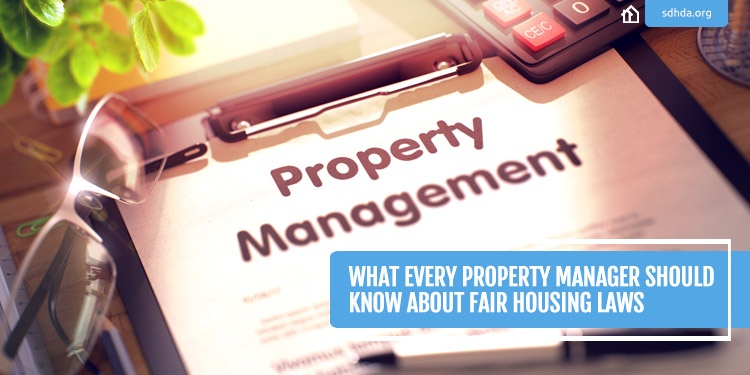
Fair housing laws protect property buyers and renters from facing discrimination from a property manager or seller. As a property manager, it's important to know about fair housing laws, how they protect tenants and buyers and what you need to do in order to comply. We've put together a few key fair housing considerations that every property manager should know.
Protected Classes
The Fair Housing Act outlines seven main "protected classes" of people, making it illegal to discriminate against tenants or potential tenants based on any of the following:
- Race
- Color
- Religion
- Sex
- Disability
- Familial Status
- National Origin
Some states have additional protected classes. If you own properties in other states, be sure that you are following all local and regional fair housing laws.
Tenant Screening
During the tenant-screening process, it can be easy to accidentally overstep a fair housing law without knowing the guidelines. Certain questions, which might normally seem like standard conversation, could be problematic if the potential tenant feels discriminated against. Avoid questions such as:
- How many children do you have?
- Are you pregnant?
- What country were you born in?
- Have you ever been arrested?
You should also avoid questions that could be perceived as discriminatory, such as, "Are you married?" or "Where did you go to school?"
READ MORE: A Property Manager's guide to acquiring Residents
Rules
When establishing rules for the properties you manage, it's important to avoid placing restrictions on protected classes of people. Under fair housing laws, children younger than 18 who live with their parents are considered a protected class. Because of this, rules such as "no children allowed beyond this point" break fair housing laws. If you must place a restriction on your residents, it cannot be specific to a certain group of people. If you're worried about damage to your property, check out our guide on 4 Ways Landlords can Protect Their Properties.
Service Animals
Some property managers try to enforce pet fees on service/assistance animals. It is important to note that service animals are not classified as pets. Service animals have been specifically trained to do work and assistance animals provide comfort to the owner. There is no such thing as a registry of assistance animals, nor is there a breed, size or weight limitation. Even "no pet" apartments need to allow an assistance animal after verification. Attempting to charge tenants differently for keeping service/assistance animals on your property is a violation of fair housing laws.
Team Training
You can't be everywhere at once. Though you may know the ins and outs of fair housing law, the people who work for you may not. It is important to train every employee—especially those who will be dealing with tenants—around proper fair-housing practices. An employee innocently asking the wrong question during a tenant screening could create conflict for your property.
READ MORE: Listing a Rental: 6 Tips for Writing the Best Apartment Ad
Fair housing law is vital to protecting the rights of property buyers and renters, but property managers can get into trouble if they aren't well-versed in US and local fair housing laws. Protect yourself and your business by understanding these crucial laws so you don't find yourself in a lawsuit later.


